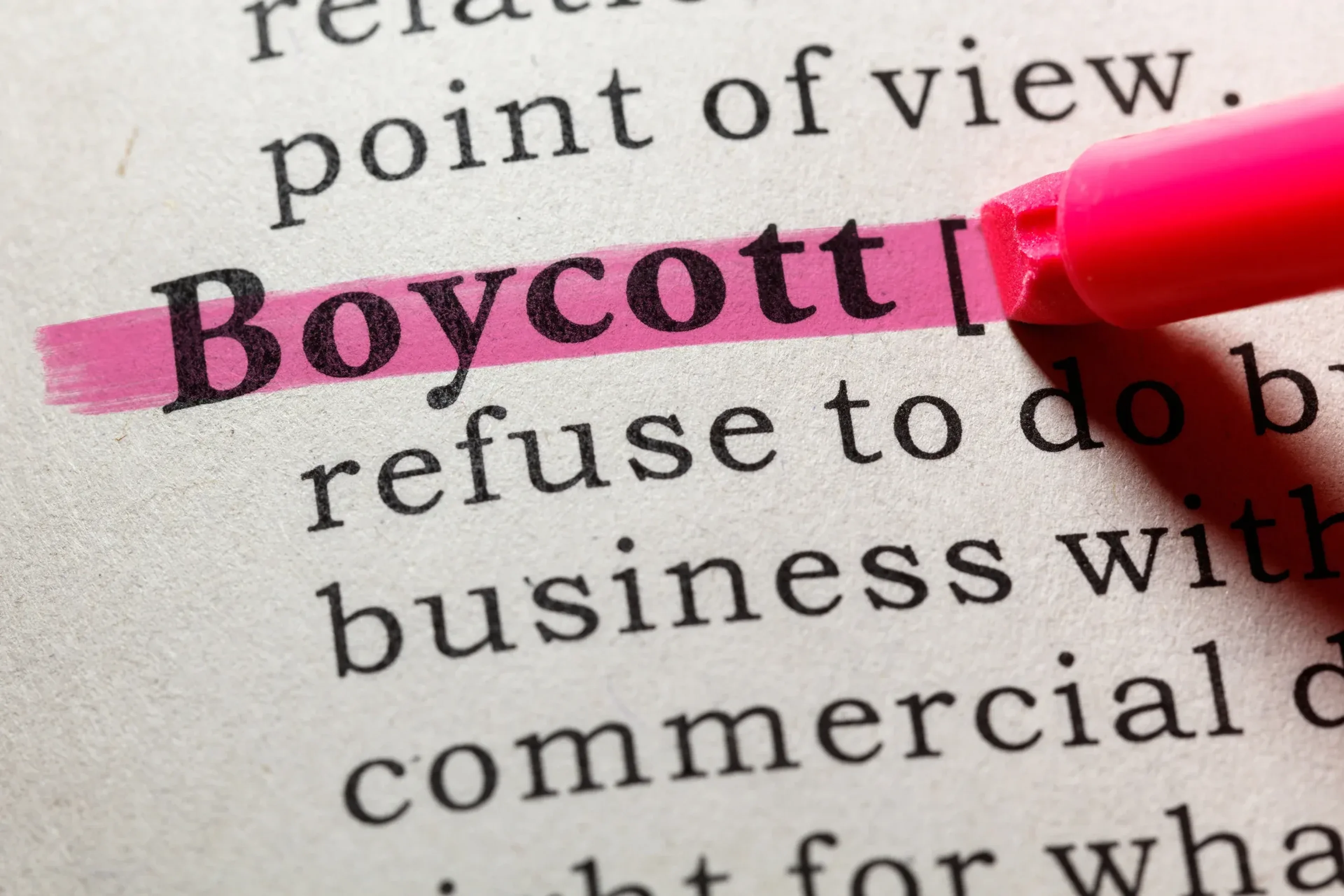
Boycott Countries: What You Need to Know
The U.S. Department of the Treasury recently released a current list of countries that require participation in, or cooperation with, an international boycott. The boycott is designed to deny certain tax benefits to any individual or business that participates in, or cooperates with, an unsanctioned international boycott.
More specifically, these individuals or businesses may suffer reduced foreign tax credits and have subpart F income in relation to taxes and income attributable to the country that sponsors or supports an international boycott. Therefore, it’s important that you understand the rules and the countries they apply to.
The Treasury Department’s current list includes the following eight countries:
- Iraq
- Kuwait
- Lebanon
- Libya
- Qatar
- Saudi Arabia
- Syria
- Yemen
What Defines Participation or Cooperation
Under Sec. 999(b)(3), a person participates in or cooperates with an international boycott when that person agrees with a country’s government or with one of its nationals or companies to do any of the following:
- Refrain from doing business with or in the country that is the target of the boycott, or with its nationals or companies.
- Refrain from doing business with a U.S. person engaged in trading with the boycotted country.
- Refrain from doing business with any company owned or managed by individuals of a particular nationality, race or religion.
- Remove or refrain from choosing corporate directors who are of a particular nationality, race or religion.
- Refrain from employing individuals of a particular nationality, race or religion.
A person might also be participating in or cooperating with an international boycott when the following takes place as a condition of the sale of a product to a country’s government, national or company. In this instance, the person agrees to refrain from shipping or insuring a product on a carrier owned, leased or operated by a person that does not participate in or cooperate with an international boycott.
Controlled Group Participation
There is a presumption if a person or a member of a person’s controlled group participates in or cooperates with an unsanctioned international boycott during a tax year, all the person’s or group’s operations in connection with the boycotting country relate to the boycott. This presumption may be rebutted, and an operation may be shown to be separate and not connected with the boycott.
If a taxpayer controls a corporation, there is a presumption participation or cooperation by the corporation is participation or cooperation by themselves, and vice versa. If any member of a controlled group participates in or cooperates with an international boycott, each member of the group is subject to the foreign tax credit denial rules.
Applicable Penalties
If the antiboycott rules apply to a person, the allowable foreign tax credit is reduced by an amount equal to the credit otherwise allowed to the person multiplied by the international boycott factor. That factor is a fraction that reflects the percentage of the taxpayer’s operations in the boycotting countries to worldwide operations. A taxpayer may deduct taxes for which a credit is disallowed, and those taxes are not included in income under Section 78.
Income deemed connected with an international boycott is included in subpart F income. The amount included under this rule is equal to all income of the controlled foreign corporation (CFC), less:
- Income attributable to earnings and profits of the CFC otherwise included in the gross income of a U.S. person under another category of subpart F income, and
- Certain income taxed by the United States at regular rates because it’s effectively connected to the conduct of a U.S. trade or business, multiplied by the international boycott factor.
Complying with Form 5713 Filing Requirements
The Form 5713, International Boycott Report is required to be filed by a U.S. company or a foreign corporation if it is owned by a U.S. person that has operations in or related to a boycotting country, its government, or a company or national of a boycotting country.
This is the case even if you are not participating in a boycott activity. Due to this, sales to any of these countries normally require the filing of the form. Willful failure to file the Form 5713 may result in a penalty of $25,000, imprisonment of one year or both.
It’s important to note, completion of Form 5713 is not an admission of participation in a boycott, but only that you have had operations in or with a boycotting country.
Additional U.S. Sanctions
The Department of State also issues regulations on countries for which the United States has imposed sanctions prohibiting trade. These are different from the denial of tax benefits mentioned above and can result in criminal penalties, as well. Countries with U.S. sanctions may include additional countries not on the list of boycotted countries. For instance, Iran is not on the above list, but there are sanctions imposed against certain trades with the country.


